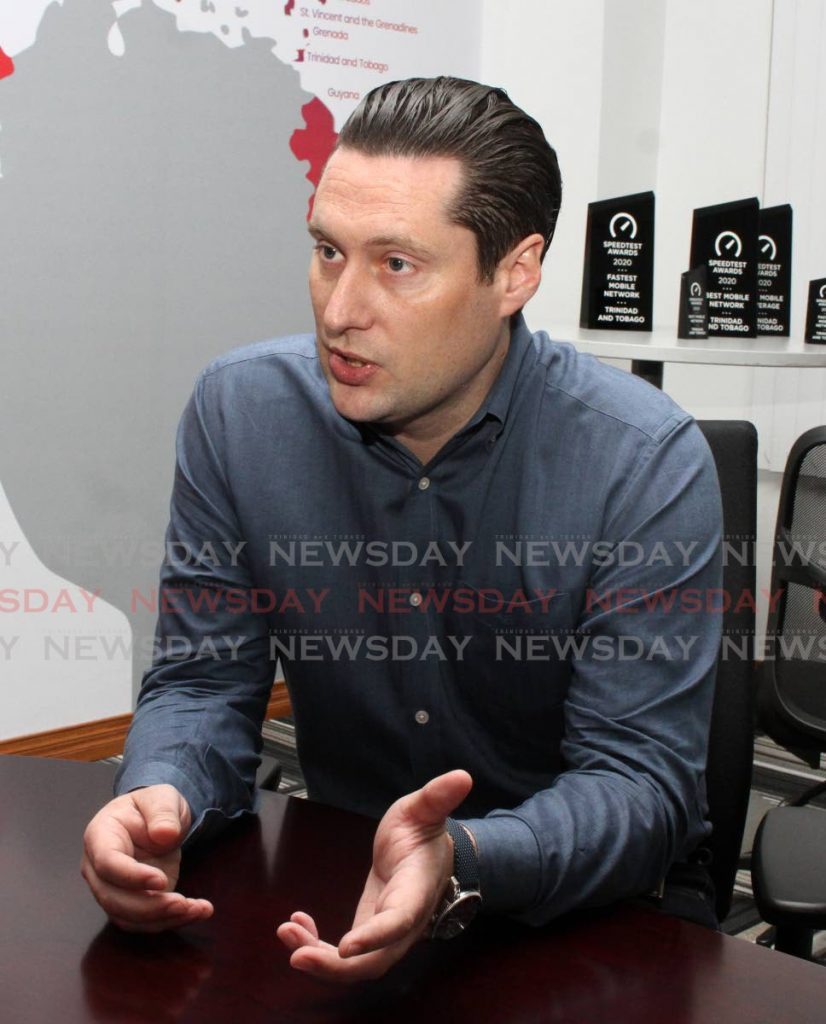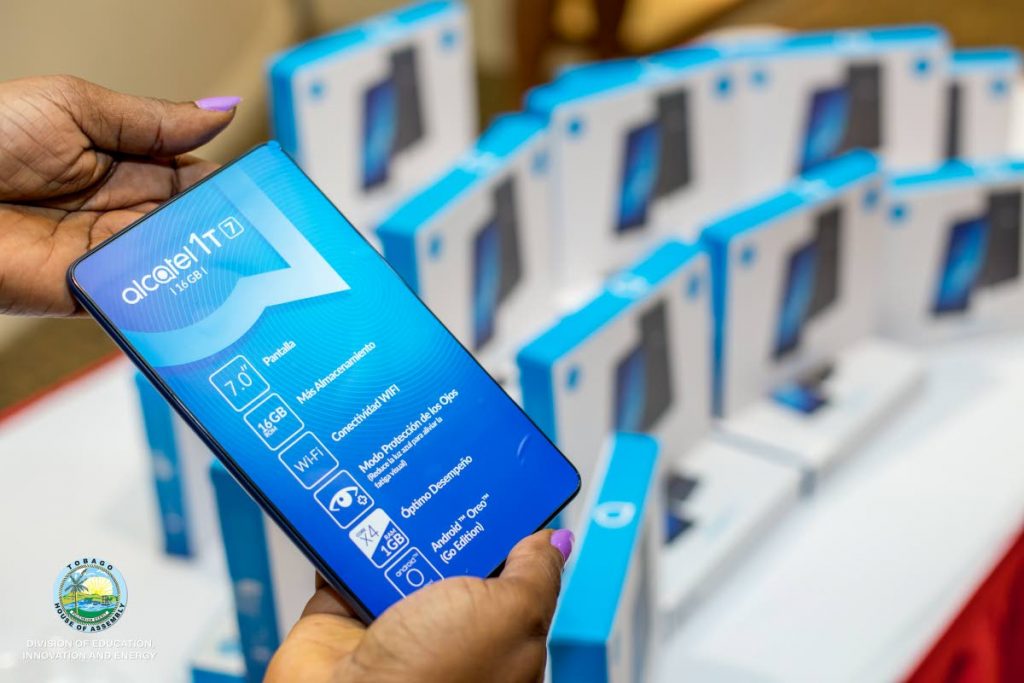UN, Digicel using big data to develop the economy

Technology is quickly changing the landscape of the Caribbean economy and the global pandemic has only served to expedite the process. As a regional player in technological advancement, telecommunications giant Digicel was approached by the United Nations (UN) to be part of its Sustainable Development Goals (SDGs) agenda.
The 2030 Agenda for Social Development, adopted by UN member states in 2015, identifies 17 goals aimed at achieving sustainable development and economic growth for all partnering countries. The UN has partnered with several corporate bodies throughout the Caribbean to educate the public and advance these initiatives.
One of these goals is the development of industry, innovation and infrastructure and Digicel has been tasked with spearheading the information drive on big data and the ways in which technology can move the country forward.
Digicel's general manager of business solutions Liam Donnelly sat with Business Day to define big data, its potential in the Caribbean and why it is necessary to make TT attractive to potential international investors.
Big data refers to the way in which large, complex data or information is analysed and extracted, offering a statistical advantage which can be used in many different sectors. It includes capturing and storing data, sharing, transferring and updating information, as well as information privacy.
Representing Digicel, Donnelly will be one of several speakers from corporate TT and key technological stakeholders at the virtual Big Data Forum TT on December 1 and 2. The forum will explore big data opportunities in TT.

Donnelly said the UN wants to use TT as a platform to reach the rest of the Caribbean.
“We saw it as a great opportunity to work with an organisation of their calibre,” said Donnelly. “The idea is to bring on other partners like Amazon and Google who will also talk about the impact (of technology).”
He said Digicel, being a global entity in 33 markets, sees the upcoming forum as a platform to educate corporations of all sizes to understand what big data could do for them.
“As a corporate entity, it can empower your decision to know what you need to support your customer base (and) what services you need to reach them.”
He said, for example, a small to medium enterprise (SME) could use big data analytics through the use of WiFi to better understand customer buying patterns.
The forum is also meant to educate the government on how big data can assist in its efforts to develop the country. “When you look at governments, I think the key for big data is that it helps to make economic decisions (and determines) where the government needs to invest as an economy.
“We’ve seen TT try to diversify and support a lot more in tech industry and agriculture. Using small devices, even in farming, you can understand what your crop turn over is, what your flood rates could be, what part of your land is susceptible to flooding and your turn over of that land.”
He also said big data is critical in the development of the smart city initiatives the government is trying to achieve. He said Digicel has experience in assisting governments in developing smart city initiatives.
“Smart cities are geared around helping the government understand how people move around the country,” he said. “It is not just having your tax online, it is how every part of government is connected back to society.”
He said during covid19, having a digital medical history would have allowed doctors to make critical decisions faster.

“It’s not big brother,” he joked, referring to theories which propagate fear of governments’ use of technology to monitor the masses. He said the aim is to work with the government to develop the economy.
The forum is also open to the public. “We’re looking for people from SMEs; educators will also be invited to participated.”
He said for the average person, the forum will be beneficial in helping the public understand how the government can help them.
“Simple things like online taxes, registration online and security in the country. The consumer will understand the government is doing things to benefit them and understand how to interact with that technology.”
He said the public will understand the benefits of big data in everyday transactions such as banking online. “Having access to tools and learning how to use those tools for the normal person is critical,” said Donnelly.
Donnelly said although people have concerns about TT’s capacity to handle the rapid technological changes, the country is capable of moving forward in a short space of time.
"I think TT is going to go through a very quick transition,” he said. “As a society we’re going to become a lot more digital.
“The technology is definitely there,” he said, adding it has been around for years. “It is available through multiple partners and avenues (but) TT is an immensely community-based culture. We like to commune with each other, we like to lime in a bar but the technology has always been there. It is about adoption now.”
Donnelly said it is also up to the public to demand it. “The society, the people who benefit from it, we need to demand it.”
He said the government has a clear agenda to move forward very quickly and they can, as long as it is planned out properly. “There’s no point in investing in a project now that isn’t sustainable in ten or 20 years. I think that’s what the government is trying to do. The ministries of finance, education and health are all laying down the foundation to build over time.”
Another of the SDGs which the company will be paying attention to is quality education.
The company, which supports special needs education through its charitable arm, the Digicel Foundation, donated devices and service to several schools during the pandemic.
The foundation donated 1,095 tablets to 39 special needs schools inclusive of 991 students and 104 teachers, also providing over 300 students and teachers with data. The foundation donated tablets to 17 more mainstream schools and over 200 students from 15 additional schools will also receive laptops.
Donnelly said while supplying connectivity and electronic devices is a step in the right direction, special education requires a different type learning environment.
“There’s a lot more education tools and software to help the teacher and the child learn at their speed…I certainly think that’s where corporate as a collective needs to get involved in TT; to support those types of initiatives.”
He said as a technology partner, its purpose is to introduce technology-based education resources into the system to support the ‘no child left behind’ model set by the Ministry of Education.
“Ultimately you need technology to support what (the government) is trying to achieve in these local communities. Digicel provides services as part of that foundation programme, whether it's WiFi, laptops or tablets or connectivity and we try to provide tools to introduce them to the technology as well.”
Ultimately, the company wants to use the forum as a platform to open the Caribbean up for larger companies to invest. “We want to open up and become a much more attractive investment for larger businesses…There’s no reason why the Caribbean can’t be seen by the Googles and the Amazons as a platform to create stimulus within the economy (and) we are working with the UN and its partners on those initiatives.”

Comments
"UN, Digicel using big data to develop the economy"